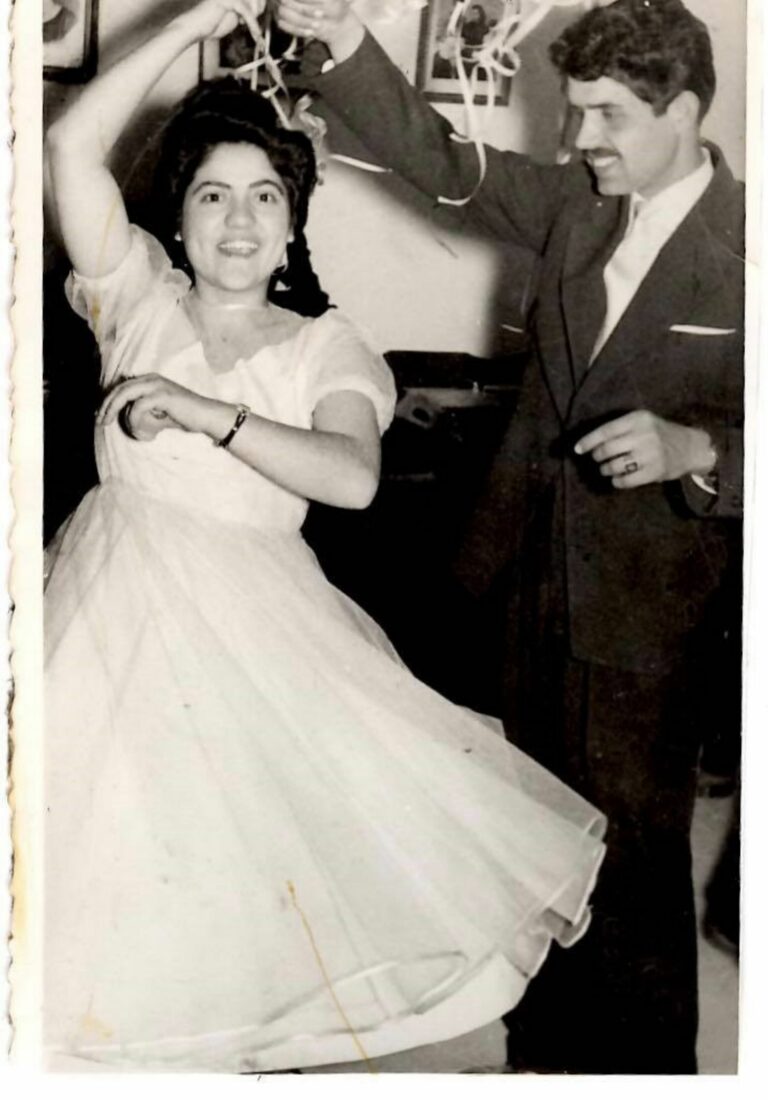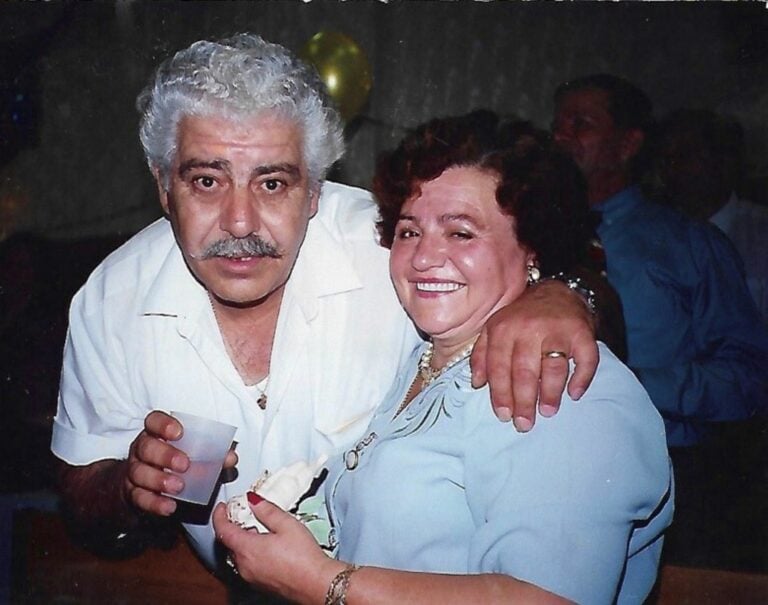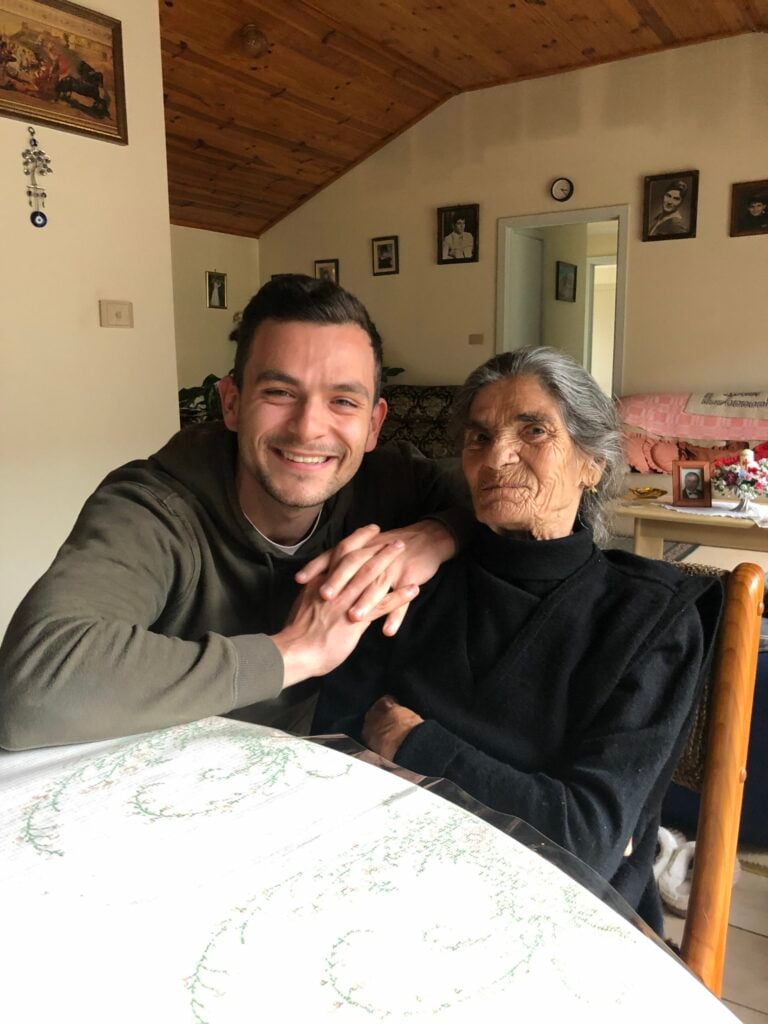As each ship docked on the shores of Australia, carrying in them hundreds of young, bright eyed Greek immigrants, no one could have predicted the impact they would have on the Australia we know today.
For many, Australia was meant to be nothing more than a temporary stop over.
“I didn’t think I’d live here forever because I told myself I was going to stay for two years and then I’d go back. But then I got married, I started a family and I chose to stay here for a better future for my children who I brought into the world,” Koula Orfanidis told her granddaughter Victoria.
Ms Orfanidis had booked her plane ticket after her brother had extended an invitation for her to join him in the ‘lucky country’.
Michael and Sotiria Tragellis also had been enticed to come by family and friends. Both made their voyage on the well known Ellenis, but at different times.
“By the time I decided to come, they had reopened the Suez Canal and it took far less time to get to Australia, as opposed to when they had it blocked off and the voyage had to be taken by going the whole way around Africa,” Mr Tragellis explained.
“When I first came, I was disheartened because I arrived in the winter. I cried almost every morning, hoping I could save up some money to buy a ticket to go back,” Ms Tragellis said.
READ MORE: Financial abuse of elders is cause for concern in community despite banks’ vigilance

Others saw hope in the opportunity to work and help their loved ones they left behind in the villages, by sending their hard earned money.
“There wasn’t much we were told, we were poor and it offered us a chance to work. I was a maid, a nurse, I stayed in the village for a little while, we worked hard to pay whatever debts we had in the village, and after that I sat around not doing much. This offered something different,” Vasiliky Panagiotidis said.
By the time boats turned to airplanes, thousands of young Greeks had carved their place in Australian society, and today they look back at the legacy they leave for their bloodlines to carry on.
Make no mistake, the nostalgia for their motherland still beats strong, but the memories are connected to the sounds of school bells ringing, running barefoot around the towns and exploring around the ponds and lakes that passed through.
“I definitely remember my motherland, my beautiful Athens where we would go to school, childhood memories of going on excursions, to the beaches, to the beautiful forests and to all these different areas which were incredible to us in those years. The lovely Acropolis is always in my mind, where we would play around with all of the children, people of all ages, and we would walk around all of Syntagma and go down to the Asteroskopeio to gaze at all the beauty that surrounded us,” Ms Orfanidis said.
READ MORE: Celebrating 58 years of marriage… When a proxy turns into a love story

“The nostalgia of your motherland and where you made your first steps, your first breath, never goes away,” Mr Tragellis said.
“But now, I’m not concerned about going back. All of my people are here. Maybe if I had a child there I’d be more inclined,” Ms Tragellis added.
Ms Panagiotidis shared similar sentiments.
“Greece doesn’t really concern me and never did. We went back for holiday once or twice, to see my mother in law and some others, but otherwise I have no reason to. I don’t have anyone there, no friends or family left. Even then, I said I’d go and I haven’t looked back,” she said.
Life for many of these early Greek-Australians entailed hard work in factories and navigating a world with just a handful of English phrases. Today, our elders lament the days when just a few dollars could buy you a whole Easter feast.
“Australia is changing, and I’d say for the worst. It was cheap, everything was happening, but now not so much,” Ms Panagiotidis said.
Despite having paved their own way, yiayia’s and pappou’s ‘financial woes’ are more or less ‘worries’ for the new generations of their families.
“Everything was cheaper, you would give a couple of coins and you would get a whole lamb,” Mr Tragellis explained.
“Everything is expensive. Those years were nice, now everything is difficult. We worry about our own grandchildren being able to provide for themselves,” Ms Tragellis added.
READ MORE: Is psychological therapy still taboo in our Greek elder community?
There is a tendency to be dismissive of older members of society, to assume they have accepted they are on the home stretch of their lives. There is a tendency to forget that many of them are adults confined to physical bodies that over time, have naturally started slowing down.
“Now that I’m old, my legs hurt and I have to, or rather I’m forced to forget what life was like when I was more mobile and could get around easier….I wasn’t scared of getting old. I always thought that when a person grows older, slowly slowly ailments come which shake you and you can’t lament your younger days,” Ms Orfanidis said.

Slowing down physically is just the tip of the iceberg. After decades of collecting memories, it’s difficult to avoid mulling over the times that were.
“With the brains we have, that still work fairly well, we have those particular nostalgias that only elders experience. Other thoughts come into your mind, especially at night. You sit in those moments when you aren’t doing anything, and something just comes flooding to your thoughts that hurts you, that upsets you, you sit and think about the past, times from back in the day. You think about all the people around you that you’ve gotten to know who have passed, who you will never see again and you know that one day it’ll be your time. Those thoughts bring upon a sadness and a thought of why?” Mr Tragellis said.
On the other hand, at 82 years of age, the grandfather of four can appreciate what all of his efforts in Australia have accumulated to.
“Alternatively, you say, I’ve paved my way, I’ve lived my life, I leave my people behind in good circumstances and you don’t get so sad about being old, because all of those people you still have around you love you and comfort you. Unfortunately, there are some people who lose a lot of those connections and end up in hospitals and other care homes. The elders, the first thing they think about is family, their children and grandchildren, and then the nostalgia of their childhoods,” he concluded.
Mr Tragellis had at one stage made a point of how “each season has its own beauty”, and although he meant that in a more literal sense, there was a metaphor to be found in there too.
We can continue picking the brains of our elders for thousands of years worth of collective wisdom, but Ms Panagiotidis leaves us with a pearl of her own; a reminder to always keep an open heart and open mind throughout life.
“It’s up to you guys to make important decisions – who you’re going to love, where you’re going to work. I went and tried a few things to see what I liked best, I think you should do the same thing. Try things you wouldn’t normally.”